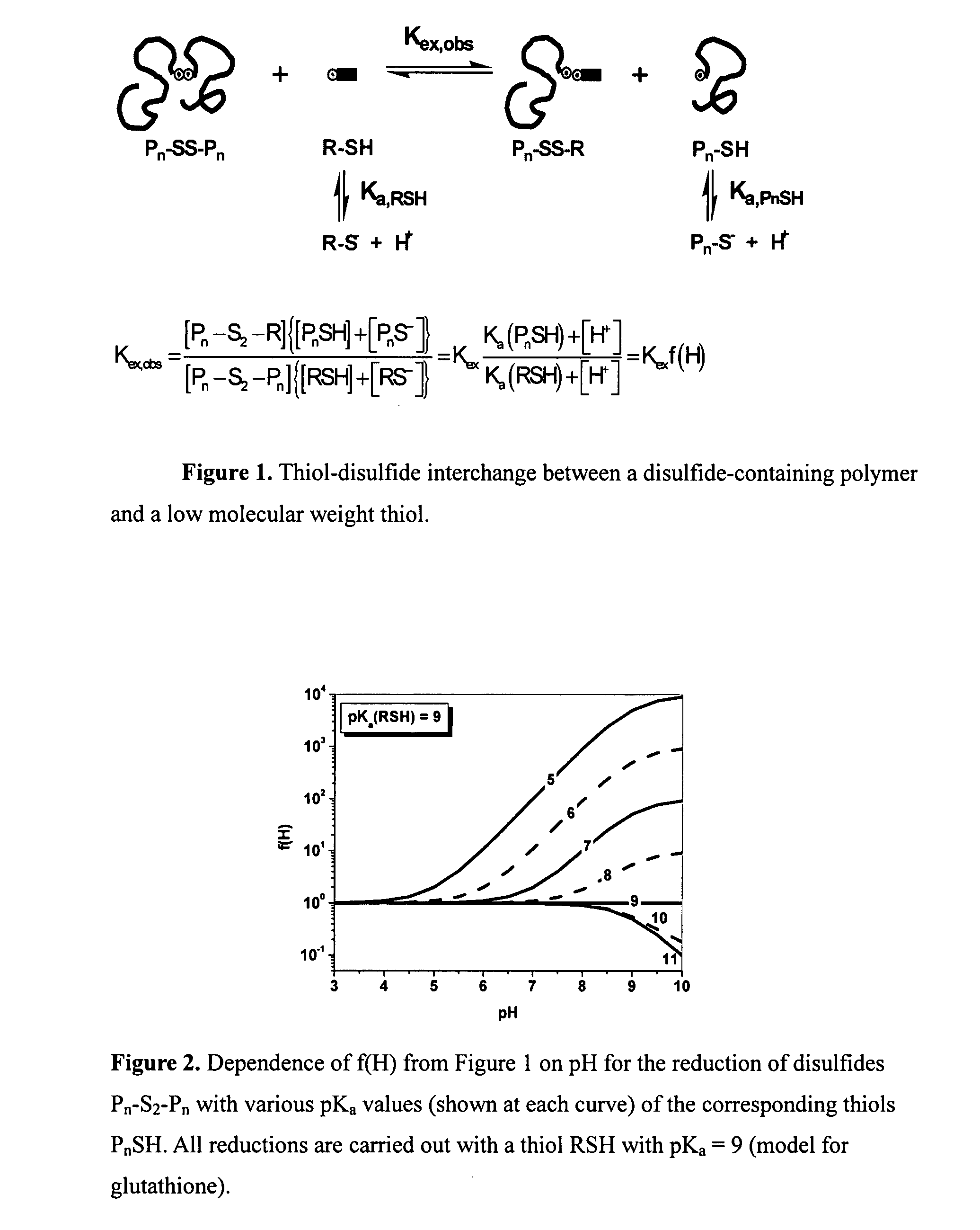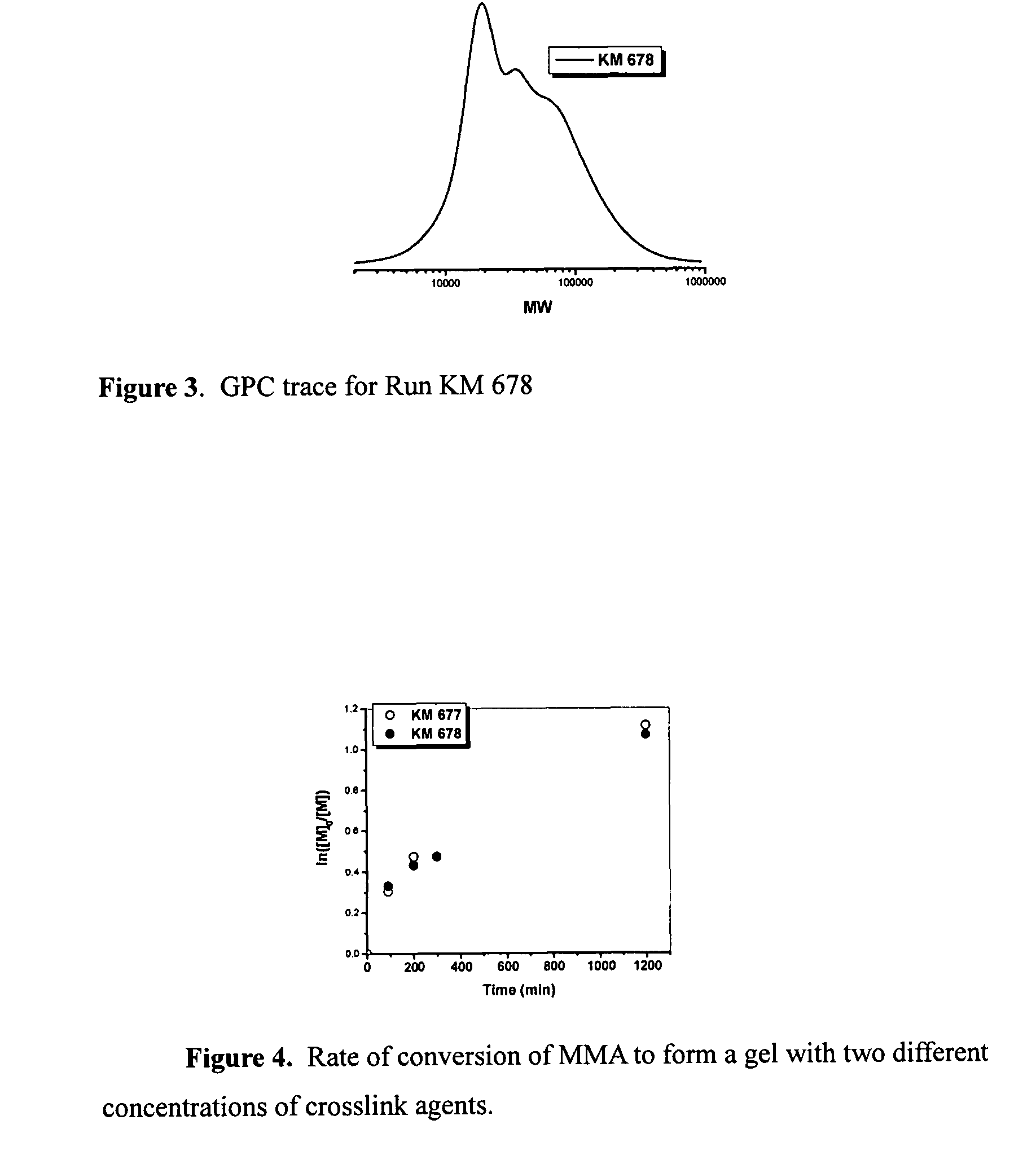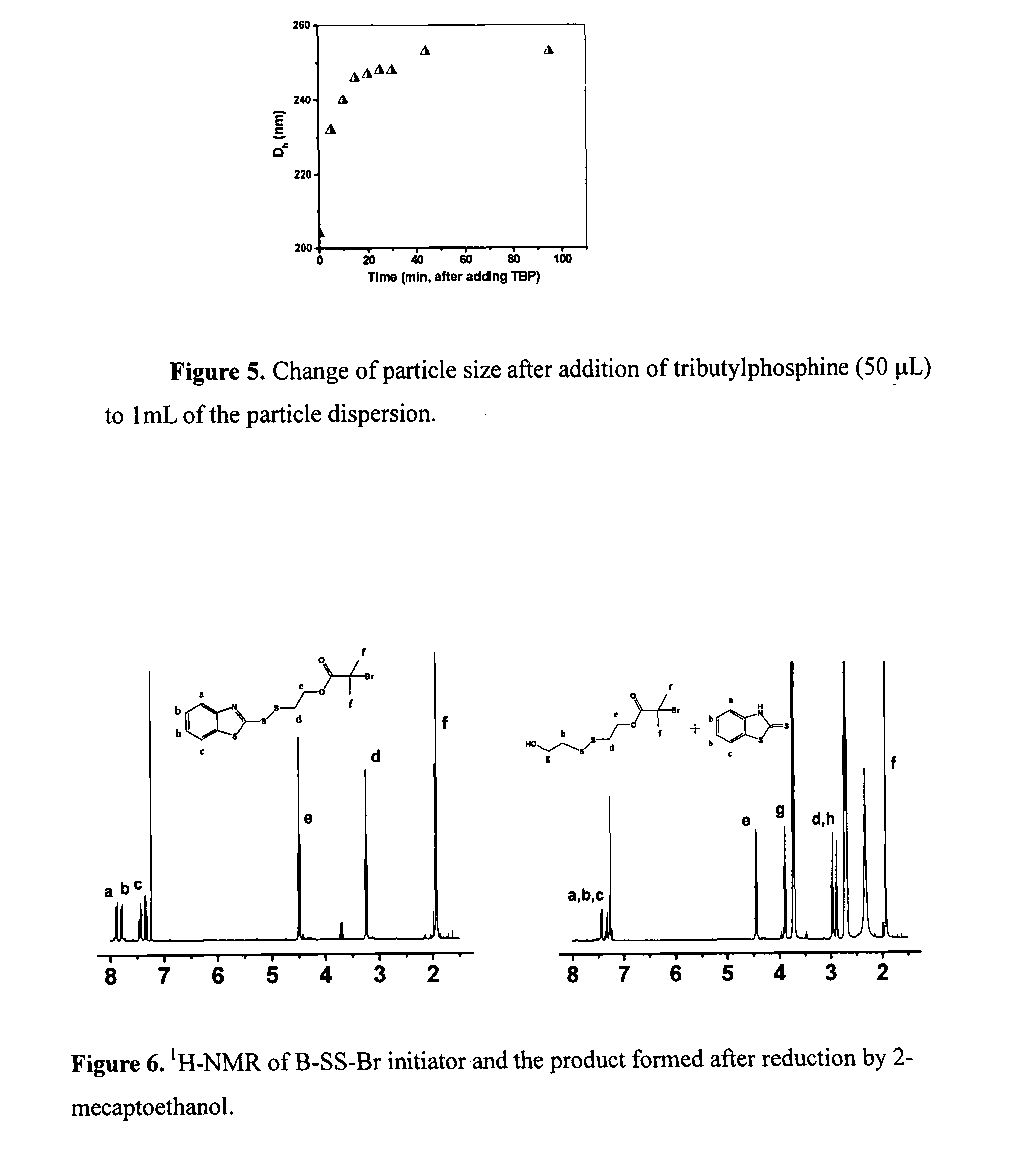Preparation of functional gel particles with a dual crosslink network
a crosslink network and gel particle technology, applied in the direction of impression caps, dyeing process, synthetic polymeric active ingredients, etc., can solve the problem of not achieving all of these objectives in a single, and achieve the effect of encapsulation
- Summary
- Abstract
- Description
- Claims
- Application Information
AI Technical Summary
Benefits of technology
Problems solved by technology
Method used
Image
Examples
example 1
Comparison of Gels Prepared by Free Radical Polymerization (FRP) and ATRP
[0119]As noted herein, gels are usually prepared by a standard free radical polymerization because of the ease of conducting the process. However, if a gel with an ordered internal microstructure is desired a gel prepared by FRP cannot meet the requirement since in a free radical co-polymerization (FRco-P) comprising a molar excess of crosslink agents, a gel is formed at very low conversion of monomers to polymer since high molecular weight polymer is formed at low conversion. Furthermore, the composition of gel particles can change as conversion increases if the reactivity of the monomer and crosslink agent differ. Gels from CRP processes, such as ATRP, should exhibit a more ordered network with evenly distributed mesh size, i.e. degree of polymerization (DP) between crosslink sites can be controlled, since each and every chain is growing at close to the same rate and the gel is formed at higher conversions of...
example 2
Micro-Particles Comprising a Double-Crosslinked Network
[0126]Microparticles were prepared by ATRP in a miniemulsion system with different ratios of permanent crosslinkers and degradable crosslinkers. The interesting characteristics about the double-crosslinking system, is that it can predictably open and close the polymeric network upon exposure to different redox environments. As a consequence of the addition / incorporation of a molar excess of permanent crosslinking agent the gel particle retains a gel structure even after opening the reversible crosslinks.
2A. First trial example: RUN KM 671, MMA:EBiB:EGDMA:SS:Cu(II) Br2:Ascorbic acid=200:1:5:5:0.4:0.12, (SS=bis(2-methacryloyloxyethyl) disulfide).
[Ratio of initiator to stable crosslinker to cleavable crosslinker is 1:5:5 with targeted DP between crosslinks equal to 10, at 100% conversion.]
[0127]The miniemulsion polymerization led to formation of a microgel with a particle size of 163 nm. The microparticles were washed with methanol...
example 3
Synthesis of Microgels with Various DP Between Crosslinks (Mesh Sizes) and Star Encapsulation
[0132]In gel synthesis and further applications based on utilization of the gel particle as a carrier material, the mesh size of the gel (average length of polymer chains (or DP) between two crosslinking points) is a parameter that should be considered in order to provide stable encapsulation of the added agent. In ATRP, this parameter is controlled by the targeted degree of polymerization, (ratio of monomer to initiator) (DP) and crosslinker (DP / X). In the following series of examples, the stable crosslinking level is held a constant (1.2 per crosslinking molecules per chain) and the DP of the backbone chains between the cleavable crosslinks are varied.
[0133]The following ratios of reagents were used for the initial two runs under standard ARGET ATRP conditions. [see, Patent Application PCT / US06 / 33792]
Run KM 687 MMA: EBiB:EGDMA:—SS—:Cu(II):Ascorbic acid=300:1:1.2:1:0.3:0.12
Run KM 689 MMA: E...
PUM
| Property | Measurement | Unit |
|---|---|---|
| time | aaaaa | aaaaa |
| diameter | aaaaa | aaaaa |
| period of time | aaaaa | aaaaa |
Abstract
Description
Claims
Application Information
 Login to View More
Login to View More - R&D
- Intellectual Property
- Life Sciences
- Materials
- Tech Scout
- Unparalleled Data Quality
- Higher Quality Content
- 60% Fewer Hallucinations
Browse by: Latest US Patents, China's latest patents, Technical Efficacy Thesaurus, Application Domain, Technology Topic, Popular Technical Reports.
© 2025 PatSnap. All rights reserved.Legal|Privacy policy|Modern Slavery Act Transparency Statement|Sitemap|About US| Contact US: help@patsnap.com



